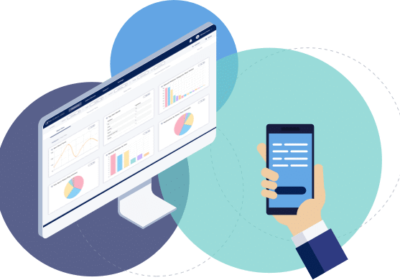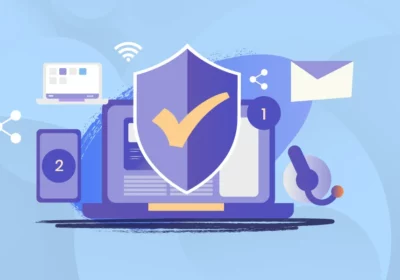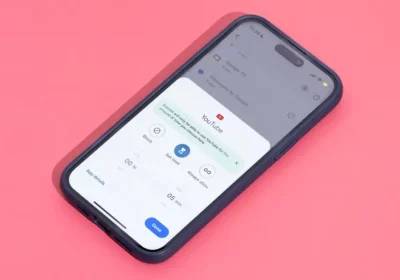In today’s digital age, businesses often find it necessary to monitor their employees’ phone usage to ensure productivity, security, and compliance. However, implementing such cell phone monitoring comes with legal, ethical, and privacy considerations. This comprehensive guide will walk you through the steps and best practices for responsibly monitoring your employees’ phones while respecting their rights and privacy.
Why Monitor Employee Phones?
Employers have several reasons to monitor employee phones, including:
- Productivity Management: Phone use for personal reasons during work hours can reduce productivity. Monitoring helps ensure that employees are focusing on their tasks.
- Security and Compliance: Employers may need to safeguard sensitive data and ensure compliance with industry regulations. Monitoring can help prevent data breaches and violations.
- Safety Concerns: In some industries, safety is a top priority. Employers may need to track employee locations in real-time to ensure their well-being.
- Preventing Inappropriate Conduct: Monitoring can deter inappropriate conduct, such as harassment, bullying, or unprofessional behavior.
- Asset Protection: Employers can protect company-owned devices and data by monitoring phone use.
Important Legal and Ethical Considerations:
Before you start monitoring employee phones, it’s crucial to be aware of the legal and ethical considerations.
- Legal Compliance: Ensure that your monitoring practices comply with federal, state, and local laws. Seek legal counsel if needed to understand your legal obligations.
- Consent: In many jurisdictions, you are required to obtain employee consent before monitoring their phones. Be transparent about your monitoring policies.
- Privacy Rights: Respect employees’ privacy rights. Only monitor what is necessary for legitimate business purposes.
- Data Security: Ensure that the data collected through monitoring is securely stored and not accessible to unauthorized individuals.
- Notification: In some cases, you may need to notify employees of the monitoring practice in advance.
Steps to Monitor Employee Phones Responsibly:
- Draft a Clear Policy:
- Develop a comprehensive phone monitoring policy that outlines the purpose of monitoring, the types of data collected, and the legal and ethical guidelines you will follow.
- Obtain Employee Consent:
- Make sure employees understand the policy and obtain their written consent to the monitoring. This is particularly important if you are in a jurisdiction where consent is legally required.
- Select Monitoring Tools:
- Choose reliable and secure monitoring tools that align with your company’s needs. These tools should have features like call monitoring, location tracking, web usage monitoring, and app usage tracking.
- Implement Geofencing:
- Geofencing can be helpful in certain situations. Set up geofences to ensure that employees are in the right location during work hours.
- Respect Breaks and Personal Time:
- Ensure that monitoring is paused during employees’ break times and outside of working hours to respect their privacy.
- Data Security:
- Secure the data collected through monitoring to prevent data breaches and unauthorized access.
- Review and Update the Policy:
- Regularly review your monitoring policy to ensure it aligns with changing laws, regulations, and business needs.
Common Phone Monitoring Features for Employers:
When monitoring your employees’ phones, it’s important to have the right tools and features to achieve your objectives:
- Call Monitoring:
- Track incoming and outgoing calls to ensure they are work-related.
- Text Message Monitoring:
- Monitor text messages to identify potential issues or violations.
- Location Tracking:
- Real-time location tracking helps ensure that employees are where they should be during work hours.
- Web and App Usage Tracking:
- Keep an eye on the websites and apps accessed on company-owned devices to ensure they are work-related.
- Email Monitoring:
- Monitor company email usage to ensure it is for professional purposes.
- Social Media Monitoring:
- Track employee social media activity to identify any inappropriate conduct or disclosure of sensitive information.
- Instant Alerts:
- Receive alerts when specific events occur, such as location breaches or keyword usage.
- Time Restrictions:
- Implement time restrictions to limit phone use during work hours.
- Geofencing:
- Set up geofences to ensure employees stay within designated work areas.
- Data Security:
- Secure the data collected through monitoring to prevent data breaches.
Balancing Employee Privacy and Company Interests:
It’s crucial to strike a balance between monitoring employee phones and respecting their privacy:
- Transparent Policies: Clearly communicate your monitoring policies and obtain consent from employees. Transparency builds trust and ensures that employees are aware of the monitoring practice.
- Limit Monitoring to Work-Related Activity: Restrict monitoring to activities directly related to work. Avoid intruding into employees’ personal lives or conversations.
- Privacy during Breaks: Respect employees’ privacy during breaks and personal time. Monitoring should only occur during work hours and for work-related activities.
- Data Handling: Ensure that data collected through monitoring is securely stored and only accessible to authorized individuals.
- Regular Reviews: Periodically review your monitoring policies and practices to ensure they align with legal requirements and ethical considerations.
The Benefits of Responsible Phone Monitoring:
When done responsibly, phone monitoring can have several advantages for employers:
- Improved Productivity: Monitoring discourages non-work-related phone use during work hours, boosting employee productivity.
- Data Security: Employers can protect sensitive company data from unauthorized access and potential breaches.
- Safety and Compliance: In industries where employee safety and regulatory compliance are critical, phone monitoring can help ensure both.
- Behavioral Accountability: Employees are more likely to adhere to professional conduct and compliance with company policies.
Conclusion:
Phone monitoring of employees is a powerful tool to ensure productivity, security, and compliance in the workplace. However, it’s crucial to carry out monitoring responsibly, in compliance with legal requirements, and with respect for employees’ privacy. Transparent policies, employee consent, and a focus on work-related activities are essential elements in creating a balance between monitoring and respecting individual rights. By doing so, employers can enjoy the benefits of responsible phone monitoring while maintaining a positive work environment.



